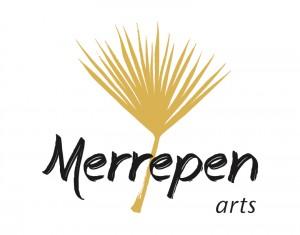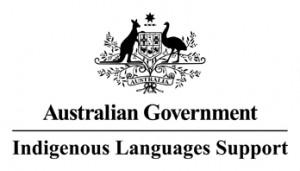Nouns
The two most interesting things about nouns in Ngan’gi are what we’ll call ‘case marking’ and ‘noun class’. Case marking refers to adding suffixes to nouns to add grammatical information of the kind that prepositions often mark in English (who did it, what did they do it with, where were they going to/from, etc.). Noun class refers to dividing up a language’s nouns into subclasses on the basis of some feature (like they all share some meaning), and marking that class somehow (maybe with a prefix). We’ll discuss both these constructions in Ngan’gi briefly here.
Case marking
In Ngan’gi there is a small group of words which mostly follow nouns that we can think of as ‘case markers’. As an example, consider ninggi, which marks the notion of ‘using an instrument’ to carry out an action, in the following example.
1) yenggi ngi pup pe palayin ninggi
fire 1sgSMoveSelf rub Fut firesticks with
I’ll rub up a fire with firesticks.
You can see that attaching ninggi to a noun in Ngan’gi can convey the same meaning we get by putting ‘with’ in front of a noun phrase in English – it tells us that the fire was lit using firesticks instrumentally.
There are about 16 of these ‘case markers’ in Ngan’gi. Although our convention is to write them as separate words, they are in fact a slightly mixed bag – some are suffixes, one is a prefix, others enclitics and particles, but we’ll treat them as a ‘class of words’ here, and briefly describe each, and providing several example sentences to demonstrate the meanings involved.
ninggi ‘Agents and Instruments’
Ngan’gi doesn’t need case markers to mark the subject and object of the verb, because as we’ve seen above, these roles are marked by prefixes and suffixed attached to the finite verb. However ninggi optionally attaches to subjects to stress their agentive role as the person carrying out the verb, especially when that role is surprising or needing clarification.
2) Falmi nem ninggi ayerrkinwari webe dada tye yedi
woman 3sg AGENT saltwater crocodile 3sgSBashPI hit Past 3sgSGo
His wife used to shoot crocodiles (for a living).
3) Minmi, ngayi ninggi ngiminynge
no 1sg AGENT 1sgSSay3sgFG
No! it was me that told her.
Ninggi also attaches to nouns to mark their instrumental role, as we saw above. In the following example you can see both instrumental ninggi and agentive ninggi.
4) Ngan’giKamu ninggi dinyngiti tyerrakul wulmen ninggi
Marrithiyel INSTR 3sgSit1sgG speak old man AGENT
The old man addressed me in Marrithiyel.
ngini/ne (NgW) ‘Purposive’
Ngini (in NgK) and ne (in NgW) attach to nouns marking the reason or motivation for doing something, as in these examples.
5) Kuru ne ngambani pe club
beer PURP 1dlincSGo Fut
Let’s go to club for a beer.
6) ngarambi fipal pe ki ne ngunyi ta pe.
1sgPokeSelf2sgG return Fut fight PURP 1sgSlash2sgO hit Fut
I’m getting back to you, for a fight, I’m going to belt you!
7) kinninggi ngani pe ayinimbi ne.
thisway 1sgSGo Fut mother-in-law PURP
I’m going round this way because of my mother-in-law (in order not to run into her).
8) falmi nem ne dini di tye.
woman 3sgM PURP 3sgSit cry Past
He was crying for his wife.
werri/werre (NgW) ‘Having’
Werri (in NgK) and werre (in NgW) attach to nouns marking some possession or characteristic or trait that it has, as in these examples.
9) Knife anggirrgimi werre yimungiti wa.
rib having 2sgSSnatch1sgG pick up
Get me a serrated (rib-having) knife!
10) Wurek kinyi, kuru ayerrkinwari were.
bad here water saltwater-crocodile having
It’s no good here, the water’s got a saltwater crocodile (in it) !
11) Dege werre yenim.
belly having 3sgSGo
She’s pregnant.
nimbi ‘from’
Nimbi attaches to nouns marking the source of a movement verb (ie. come from town, change from a boy into a man), or a temporal source (ie. since last week), or the cause of some resultant state (ie. be sick from poison), as in the following examples.
12) Gagu yudungurr puty pe kin nimbi.
animal 2sgSMove1plexG chase Fut here from
You’ll scare the (fish) away from us.
13) Ngirrsyenyi wurr pe ngityirr abarri nimbi.
1plexPull2sgO enter Fut ground soft from
We’ll pull you out from the bog.
14) Wawedimuy nimbi yedi tye wademe piyiri tye yedi.
child from 3sgGo Past Male-3sgSHands headnumb Past 3sgSGo
From when he was a child he was always shy.
15) Kuru nimbi ngini kukuduk tye demngi mitit.
beer from 1sgSit drink Past 3sgSHands1sgO have headache
I have a headache from the beer I was drinking.
nide ‘in’
Nide attaches to nouns marking location, or the endpoint of movement, and often corresponds to ‘in, into and at’ in English, as the following examples show.
16) Ngayi malfiyin nide ngirim nyine dede.
1sg placename at 1sgSSit now camp
I’m living at Malfiyin now.
17) Fidi nide wangirrki syalat pe wiri.
sunheat in 3sgSHeat1dlexO warm Fut 3sgSit
We’ll warm ourselves in the sunshine (lit: It will warm us in the sun’s heat)
18) billycan musyulng wanniny madikuli mudiga nyinyi nide.
swag 3plS.Go inside-throw car 2sg in
They threw the billies and swags into your car.
19) Wamanggal ngudupun wele yewirr nide.
wallaby 1sgSMove hang tree in
I hung the wallaby in the tree.
pagu ‘via’
Pagu attaches to nouns marking them as a pathway along which movement takes place, as in the following examples.
20) Depi pagu ngeme syarr tye tyet.
head via 1sgSHandsSelf scrape Past shirt
I pulled my shirt off over my head.
21) Mentyikanbi pagu ngupung genket ngekin masyapu.
windpipe via 1sgSSlash cut colon large
I pulled (the turtle’s) guts out through (a hole in) its windpipe.
22) Old highway pagu ngarrany fipal.
via 1plexSPokeSelf return
We came home by the old highway.
pagu and pefi ‘this way’ and ‘that way’
Pagu also occurs in opposition to pefi respectively marking movement towards and away from the speaker. You can see this contrast in the following pair of sentences where these words clarify the direction of return.
23) Etye kinyi pagu yara fipal pe?
when here thisway 2sgSPokeSelf return Fut
When are you coming home?
24) Etye wuni pefi yara fipal pe?
when there thatway 2sgSPokeSelf return Fut
When are you going home?
Note that pefi and pagu can also attach to verbs with the same meanings, so the above two examples could be reworded as;
25) Etye yara fipal pagu pe?
when 2sgSPokeSelf return thisway Fut
When are you coming home?
26) Etye yara fipal pefi pe?
when 2sgSPokeSelf return thatway Fut
When are you going home?
Note also that pagu can attach to verbs as well as nouns, and here it also has the ‘this way’ sense of ‘do it for me’ or ‘do me a favour’, as in this example.
27) Ya, peke yudingindi fityi pagu!
tobacco 2sgSMove1sgG roll thisway
Hey, roll me a smoke!
nana/merrendi (NgW) ‘warning’
Nana (in NgK) and merrendi (in NgW) attach to nouns marking meanings like concerns, warnings, prohibitions, and inability. As you can see from the examples below, translations of nana/merrendi are usually expressed as ‘in case something happens’, ‘better not’, ‘aren’t allowed to’, or ‘can’t’, etc.
28) Wawetimuy yenim wurrsimuy, ngemi palak nana.
little boy 3sgSGo afraid 1sgSHands drop in case
The little boy is afraid, in case I drop him.
29) minbe yarra figimityat, ngumbudu madifili merrendi.
Neg 2plSPokeSelf place-on-side 1plincSMove chestroll in case
Don’t all sit on the (one) side (of the boat), in case we roll it over.
30) Nem wunu ngirrwat ngayi yenim, minbe merrendi ngarrenengirrki tyerrakul.
3sgM that namesake 1sg 3sgSGo Neg allowed 1dlexSGo1dlexG talk
He is my namesake, we’re not allowed to talk to each other.
31) Ngayi wamirrisyarrangi minde nana mudiga kinyi ngemi baty.
1sg blind man-me Neg can’t car this 1sgSHands take
I’m blind, I can’t drive this car.
yirre ‘correctly’
Yirre attaches to nouns marking them as the correct entity, in contrast to something said or assumed that is incorrect, i.e. ‘It’s not X, as you think, but Y-yirre that is correct’.
32) ngem fiket were ngiminyne, epe yetyi yirre ngumbumumne
1sgSMouth say-falsely brother 1sgSSay3sgG but son correctly 1dlincSSay3sgG
I mistakenly called him ‘brother’, but it’s ‘son’ that you ‘n me correctly call him.
yendi ‘same’
Yendi attaches to nouns marking them as the ‘same’ as something else. As you can see from the examples below, translations of yendi are usually expressed as as ‘same’, ‘again’, ‘as well’, ‘still’ etc.
33) Dede nyin nendi yawamngi!
country that same 2sgSTake1sgO
Take me back to that same place again!
34) Anyin nendi minbe tye wanni fili.
Anim-that same Neg Past 3plSGo wander
That’s still the same (bullocks), they haven’t wandered.
35) Minbendi yangi tyerrpu, minbe pagu yumu-ngiti
Neg-same 2sgSPoke1sgO ask Neg thisway 2sgSSay1sgG
Don’t ask me more of the same questions. Don’t question my
tyagan ne, tyepe ngan’gi ngayi yumungi me wa.
what for just word 1sg 2sgSSnatch1sgO hand pickup
intentions. Just take my word for it!
gimi/gumu ‘like’
Gimi (in NgK) and gumu (in (NgW) attach to nouns marking them as something similar to, or like something else, as you can see in the following examples.
36) Knife pagu ngini kinyi gumu yumungiti wa pe wagarri.
thisway kind this like 2sgSSnatch1sgG pickup Fut two
Get me two knives like this kind!
37) Kuderri bengin derrilit ngani bafun gimi.
billabong 3sgSBash backcover kind dust like
The billabong was covered (in a film of something) like a kind of dust.
ngani/ngini ‘like’
Ngani (in NgK) and ngini (in (NgW) attach to nouns marking them as something ‘of the same kind’ as something else. Unlike all the other Ngan’gi ‘case markers’ discussed in this section, ngani/ngini is a prefix (it attaches to the front of nouns), and it frequently co-occurs with gimi/gumu, as you can see in the following examples.
38) Yerr ngini kinyi minbe derrigidi ngerim, warrmadi wayim waty ngidde.
Thing kind this Neg want 1sgSHands quickly 3sgSHeat consume 1sgBad
I don’t like this kind of (tree class member) tobacco, It burns up too quickly on me.
39) gagu angini kide derrigidi yerim?
meat Anim-KIND which want 2sgSHands
Which kind of meat do you want?
napa ‘just’
Napa attaches to nouns as a type of limiting emphatic, and is usually translated as ‘just’ as the following examples show.
40) Yenggi wayim waty yenim, bafun napa wibem.
fire 3sgSHeat consume 3sgGo ash just 3sgSLie
The fire has consumed (the whole log), it’s just ash.
41) Nyinyi napa deti felfi derrigidi ngerinynyi.
2sg just same alone want 1sgSHands2sgO
It’s still you alone that I want/love.
nawa ‘instead’
Nawa attaches to nouns identifying that entity/activity as ocuring ‘instead of’ or ‘in preference to’ some other thing, as the following examples show.
42) Yedi nawa wannim fifi falmi minmi.
man instead 3plSGo blow woman Neg
It’s men who blow (the didjeridu), women don’t.
43) Syiri damuy yerim baty? Minbe yawurr, menynin wun nawa
cartridge 2sgSHands hold Neg thing 3sgSSay1dlincG there instead
‘Got any cartridges?’, ‘No, nothing’ he told us.
Wulmen nide yanneyerri, nyin nawa demim baty.
oldman to 2sgSTravel that instead 3sgSHands hold
‘but go over there (instead of here) to the old man, he instead (of me) has got some’.
wurru ‘Unsatisfactory’
Wurru attaches to nouns identifying them something the speaker finds to be unsatisfactory. It often translates into English with meanings like ‘too much’ and ‘not enough’, as the following examples show.
44) ti kinyi wurek wurru.
tea this bad UNSATIS
This tea is too weak!
45) firrngityirr nimbi yani lali,
footwalk from 2sgSGo around
If you were to go on foot,
diwin erreke nawa yemengge, minbe mendi wurru.
moon howmany instead 2sgSArrive Neg close UNSATIS
it’d take you months to get there… it’s too far!
46) minbe mi wurru ngirim.
Neg Veg UNSATIS 1sSgSit
I haven’t enough food (to spare you any).
47) gagu minmi wurru a-minbadi mani.
Anim Neg UNSATIS Anim-big money
(I don’t have) enough money, it’s too expensive!


